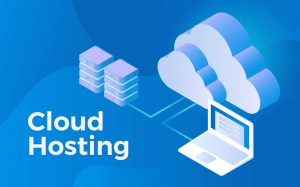What is Cloud Computing – and Why Should you Use it for your Firm

The world of business has changed exponentially in the last thirty or so years. With the continuous onward march of technology, computers, and the internet, firms are now able to operate far more efficiently than at any point in history, expanding into global markets and streamlining operating costs.
One of the most exciting developments in recent years has been the emergence of cloud computing technology. As our mobile connection speeds have continued to increase and our devices have become increasingly mobile-based, firms are now able to leverage the considerable power of remote servers to enhance their operations.
What does the term ‘cloud computing’ mean?
In a nutshell, ‘cloud computing’ refers to the concept of delivering computer services over the internet (the cloud) – whether that be storage, databases, server tech, software, Artificial Intelligence (AI), or processing power.
In the not-so-distant past, firms that relied on technology needed to install costly servers locally, upgrading or downgrading their own in-house tech as their requirements changed. No business stands still, and this endless process of changing service provision as their needs changed puts a significant financial burden on companies.
The considerable advantages to be gained from integrating your firm with the cloud
Operating your firm with cloud integration can bring substantial advantages to your company, including:
Reduced costs and staffing overhead: Previously, companies that used technology would incur the significant overhead of buying servers and installing machines locally – plus would likely need to employ a dedicated IT specialist. These costs were often prohibitively expensive – particularly for smaller companies that relied on IT as a sideline to their main business. By partnering with a cloud service provider and a Cloud Access Security Broker (CASB) like Proofpoint to monitor and protect access, your firm can start taking advantage of the considerable cost-savings of cloud working.
Options for remote, collaborative working: The recent Coronavirus highlighted just how important cloud technologies have become for commerce. Through lockdowns and distancing, employees could no longer attend the workplace; instead, they were being forced to work remotely. COVID has changed many aspects of our lives but perhaps none more so than the world of work. Even once the dangers of the virus subside, most industry experts are in agreement that we’re unlikely to see a return to our traditional office-based work culture anytime soon. Investing in cloud technology could help you future-proof your company for tomorrow – plus will bring significant cost savings.
Take advantage of remote storage space and processing power: As connection speeds have improved, so the internet has become increasingly mobile. However, despite our devices becoming considerably more powerful (your cell phone is more potent than the computers that took man to the moon), the small form factor of mobiles, tablets, etc. still limits them – both from a processing and storage point of view. By integrating with the cloud, you can perform complex tasks using the power of machines held remotely, vastly increasing the usefulness and power of your mobile devices.






